 his is the concluding part of a two-part series on diet tips for the diabetics, by dietitians Priya Khanna and Seema Tarneja:
his is the concluding part of a two-part series on diet tips for the diabetics, by dietitians Priya Khanna and Seema Tarneja:
Part I: Diabetics, heed these diet tips!
Diabetes mellitus is a chronic metabolic disorder in which the body fails to convert sugars, starches and other foods into energy.
Many of the foods you eat are normally converted into a type of sugar called glucose during digestion. The bloodstream then carries glucose through the body. The hormone, insulin, then turns glucose into quick energy or is stored for futher use.
In diabetic people, the body either does not make enough insulin or it cannot use the insulin correctly. This is why too much glucose builds in the bloodstream.
There are two major types of diabetes:
1. Type 1
This is popularly known as Juvenile Onset Diabetes.
Here, the body produces little or no insulin. It occurs most often in childhood or in the teens and could be inherited.
People with this type of diabetes need daily injections of insulin. They must balance their daily intake of food and activites carefully with their insulin shots to stay alive.
2. Type 2
Also known as Adult Onset Diabetes, this occurs around 35 to 40 years. The more common of the two types, it accounts for about 80 per cent of the diabetics.
Here, though the pancreas produce adequate insulin, body cells show reduced sensitivity towards it.
Type 2 diabetes is usually triggered by obesity. The best way to fight it is by weight loss, exercise and dietary control.
Sometimes, oral medication or insulin injections are also needed.
~ Symptoms of diabetes
Here are a few:
- Extreme thirst and hunger
- Frequent urination
- Sores or bruises that heal slowly
- Dry, itchy skin
- Unexplained weight loss
- Unusual tiredness or drowsiness
- Tingling or numbness in the hands or feet
Whether Type 1 or 2, diabetics need a balance of diet and exercise.
Here are some foods you can eat, and some foods you must avoid!
Foods you must avoid!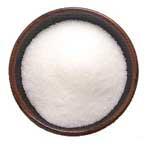
i. Salt
Salt is the greatest culprit for diabetics. You get enough salt from vegetables in inorganic form, so reduce the intake of inorganic salt.
ii. Sugar
Sucrose, a table sugar, provides nothing but calories and carbohydrates.
Also, you need calcium to digest sucrose. Insufficient sucrose intake might lead to calcium being leached off the bones.
Substitute sucrose with natural sugar, like honey, jaggery (gur), etc.
iii. Fat
Excessive fat intake is definitely not a good habit.
Try and exclude fried items from your diet totally.
But, remember, you must have a small quantity of oil to absorb fat-soluble vitamins, especially vitamin E.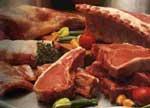
iv. For non-vegetarians
Try and stop the intake of red meat completely.
Try to go in for a vegetarian diet. If you cannot, decrease the consumption of eggs and poultry.
You can, however, eat lean fish two to three times a week.
v. Whole milk and products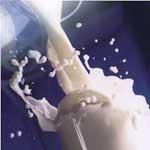
Try to switch to low fat milk and its products like yogurt (curd).
Replace high fat cheese with low fat cottage cheese.
vi. Tea and coffee
Do not have than two cups of the conventional tea or decaffeinated coffee every day.
Try to switch to herbal teas.
vii. White flour and its products
Replace these with whole grains, wholewheat or soya breads and unpolished rice.
viii. Foods with a high glycemic index
Avoid white rice, potatoes, carrots, breads and banana -- they increase the blood-sugar levels.
Special food for diabetics
i. Bitter gourd (karela)
This vegetable contains a high dosage of 'plant insulin'. It lowers the blood-sugar levels effectively.
Have the juice of three to four karelas early morning on an empty stomach.
As a vegetable, too, it can be taken on a regular basis.
Powder the seeds of karela (measuring 1 teaspoon), mix with water and drink it.
ii. Fenugreek (methi)
It is the most common food used to control diabetes.
Gulp a teaspoonful of these seeds with a glass of water daily.
Soak the seeds overnight. Have the water in which the seeds were soaked.
You can make a chutney with methi seeds. You can also eat them sprouted, dried and powdered, or mix them in wheat flour to make chapattis.
iii. Indian blackberry (jamun)
This fruit is very effective in preventing and controlling diabetes.
Powder the stone of the fruit and eat it -- it contains glucoside, which prevents the conversion of starch into sugars.
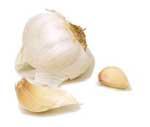 iv. Garlic
iv. Garlic
This is used to lower blood-sugar levels.
Garlic is rich in potassium and replaces the potassium which gets lost in urine.
It also contains zinc and sulphur, which are components of insulin.
Take about three to four flakes of freshly crushed garlic daily.
v. Onion 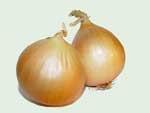
Because of its diuretic and digestive properties, onion works against diabetes.
Raw onion is more useful.
vi. Flaxseed
This is the richest source of Omega 3 fatty acids.
It helps control diabetes because it maintains the sensitivity of the cell membrane, facilitates insulin, and thereby the uptake of glucose by the cells.
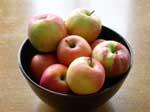 vii. Fibre
vii. Fibre
Soluble fibre, found in apples, kidney beans, oatmeal, soyabean, etc, help control diabetes.
These aid slow digestion and absorption of nutrients, resulting in a slow and steady release of glucose.
They soak up excess bile acids found in the intestinal tract, the same acids that are converted to blood cholesterol.
They also help empty the stomach and trigger satiety that can help Type 2 diabetics to achieve weight loss goals.
viii. Cinnamon solution
Water extracts of cinnamon have been found to promote glucose metabolism and reduce cholesterol.
You can boil cinnamon sticks in water and drink this water.
ix. Antioxidants
Diabetes is often associated with conditions like heart disease, diabetic retinopathy, immune deficiency and kidney disease.
Many are caused by free radical damage. Therefore, make sure you include antioxidants, especially vitamin C (lemons), E, selenium, zinc and chromium (Brewer's yeast), in your diet, as they have been shown to control blood sugar levels.
DON'T MISS!
Part I: Diabetics, heed these diet tips!





